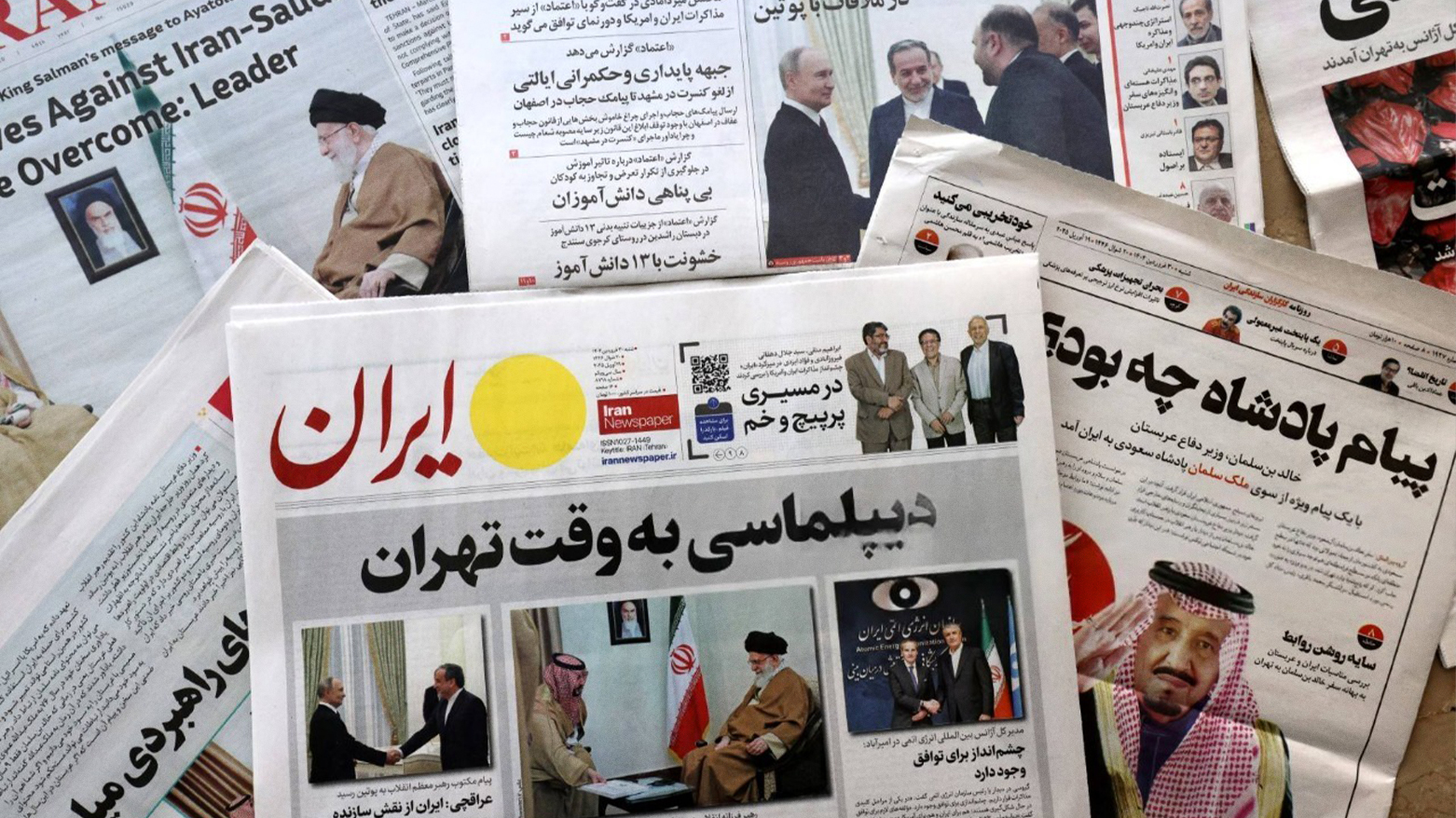Nuclear Tensions Escalate as Iran Dismisses Zero-Enrichment Demands
As tensions rise over Iran’s nuclear program, Iran's FM Abbas Araghchi rejected Western demands to halt uranium enrichment, calling them an attack on sovereignty. Iran's President Pezeshkian echoed the stance, as the West prepares an IAEA censure.

By Kamaran Aziz
ERBIL (Kurdistan24) – As geopolitical tensions over Iran’s nuclear program deepen, Iranian Foreign Minister Abbas Araghchi on Saturday, May 31, 2025, pushed back against renewed Western calls for Tehran to halt uranium enrichment. Speaking at the mausoleum of Ayatollah Ruhollah Khomeini near Tehran, Araghchi framed these demands as an infringement on Iranian sovereignty rather than addressing international concerns about potential weapons development.
“When the other parties say you must not have enrichment, they are essentially trying to assert a kind of dominance and superiority over us,” Araghchi said, according to Iran’s state-run IRNA. He insisted that under international law, Iran retains the right to enrich uranium for peaceful purposes.
Araghchi’s remarks came amid intensifying Western scrutiny of Iran’s nuclear activities.
As reported by The New York Times, Israeli Prime Minister Benjamin Netanyahu has pressed the Trump administration to abandon ongoing diplomatic efforts in favor of preemptive military strikes on Iran’s nuclear infrastructure. Netanyahu argues that Iran’s perceived vulnerability presents a narrow window for action, whereas President Trump has signaled a preference for securing a negotiated resolution, stating recently that “something good” may emerge from the talks within days.
The central point of contention in U.S.-Iran negotiations remains whether Tehran should be allowed to continue enriching uranium. Araghchi has categorically rejected any zero-enrichment policy, stating on social media: “If the Western powers insist on zero enrichment in Iran, then there is nothing left for us to discuss.”
Adding to the diplomatic impasse, Iranian President Masoud Pezeshkian, during a state visit to Oman on May 27–28, reiterated Iran’s stance that nuclear weapons have no place in the country’s doctrine. In an interview with Oman TV, cited by IRNA, Pezeshkian referenced a religious decree by Supreme Leader Ayatollah Ali Khamenei as assurance of Tehran’s peaceful intentions. However, such statements have done little to allay the skepticism of Western governments, which remain concerned over Iran’s nuclear transparency.
“We will never yield to pressure to stop enrichment,” Pezeshkian asserted, adding that Iran considers uranium enrichment essential for non-military applications such as healthcare, agriculture, and industry. He praised Oman’s continued role in facilitating U.S.-Iran negotiations but deflected blame for regional instability onto Israel—a position that Western analysts view as politically charged and aimed at deflecting scrutiny from Iran’s own actions.
Meanwhile, Reuters reports that the United States and its European allies—Britain, France, and Germany—are preparing to seek a formal resolution from the International Atomic Energy Agency (IAEA) declaring Iran in breach of its non-proliferation obligations. The expected resolution, set to be presented at the IAEA Board of Governors meeting on June 9, would mark the first such move in nearly two decades.
“We expect the comprehensive report to be tough, but there were already no doubts over Iran not keeping its non-proliferation commitments,” one European diplomat told Reuters.
Such a resolution could intensify tensions and undermine diplomatic momentum. A senior Iranian official warned that Tehran would respond by expanding its nuclear activities in accordance with the resolution’s terms. Currently, Iran is enriching uranium to 60% purity—just short of weapons-grade—and possesses enough material, if further refined, for multiple nuclear warheads, according to IAEA assessments.
Despite repeated denials from Tehran that it seeks nuclear weapons, Western intelligence agencies and IAEA reports suggest that Iran’s capabilities could be rapidly converted for military use if a decision were made.
In response, Israeli officials have continued military preparations. According to The New York Times, Netanyahu instructed security officials to finalize plans for potential unilateral strikes against Iranian facilities—operations that could be executed without direct U.S. involvement.
Although President Trump remains committed to a diplomatic track, his administration has shown signs of flexibility. With Oman mediating, talks have explored options such as a regional nuclear fuel consortium involving Iran, Saudi Arabia, and other stakeholders. However, congressional hawks and Israeli leadership have voiced strong opposition to any deal that leaves Iran’s enrichment infrastructure intact.
With diplomatic time running short and military contingencies being readied, the standoff between Iran and the West may soon reach a critical turning point—one that could either stabilize the region through compromise or plunge it deeper into conflict.